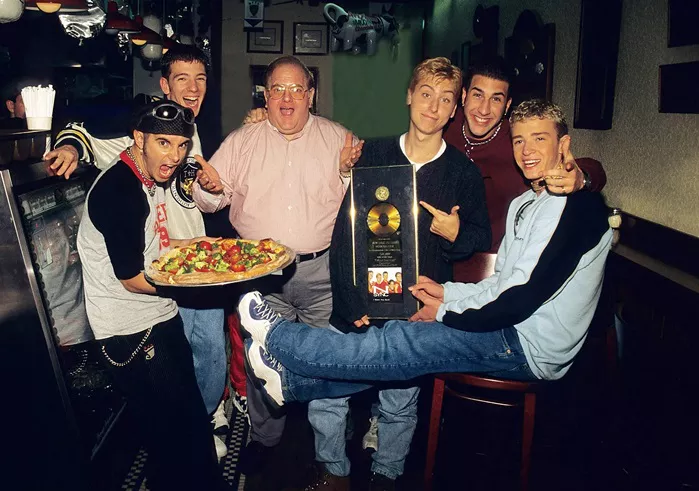Netflix’s new docuseries, Dirty Pop: The Boy Band Scam, delves into the murky world of the music industry, spotlighting Lou Pearlman, the controversial figure behind two of the Y2K era’s most renowned boy bands, NSync and the Backstreet Boys. The series reveals the extent of Pearlman’s decades-long fraudulent activities and exploitation of young talent through a mix of interviews and archival footage.
Born on June 19, 1954, in New York City, Pearlman was raised by his parents, Hy and Reenie Pearlman, and was the cousin of Art Garfunkel of the folk rock duo Simon & Garfunkel. Pearlman initially ventured into business with a helicopter taxi service in the 1970s before moving on to blimp leasing with Airship International. His blimp venture faced a setback when the company’s sole blimp crashed shortly after its 1980 launch.
Pearlman later founded Trans Continental Airlines, a private air charter service for musicians. It was during this period that he encountered the New Kids on the Block, who were earning significant revenue. Pearlman’s curiosity about their success led him to a revelation that inspired his transition into the music industry. He noted in a 2000 ABC News interview, “I was told these kids did US$200 million in record sales and US$800 million in touring and merchandising. I was like, ‘I’m in the wrong business.’”
Pearlman’s foray into music began with the creation of his label, Trans Continental Records, which launched the Backstreet Boys. The band’s success propelled Pearlman into the spotlight and led him to manage NSync, as well as other groups like O-Town, LFO, Natural, Take 5, Marshall Dyllon, US5, Solid HarmoniE, and Innosense. He also managed solo artists such as Aaron Carter and Jordan Knight.
In 1998, the Backstreet Boys took legal action against Pearlman, alleging that despite their success, they had only received US$300,000 since 1993, while Pearlman had amassed US$10 million. NSync followed suit with their own lawsuit, leading to Pearlman’s dismissal as their manager. Over the years, several other artists also filed lawsuits against him. Pearlman’s legal troubles reached a climax in 2006 when it was discovered he was involved in a long-running Ponzi scheme, defrauding investors of at least US$300 million.
Pearlman was sentenced to 25 years in prison in 2008 for his role in the Ponzi scheme. The Vanity Fair article that followed his arrest also brought to light allegations of inappropriate behavior towards some of the young men he managed. Pearlman died from cardiac arrest in August 2016 while serving his sentence at the Federal Correctional Institution in Miami, Florida, eight years into his incarceration.

